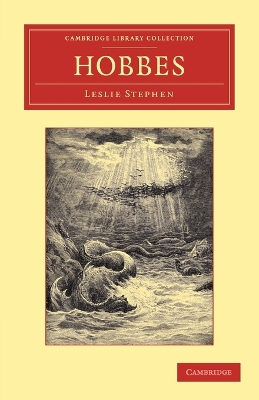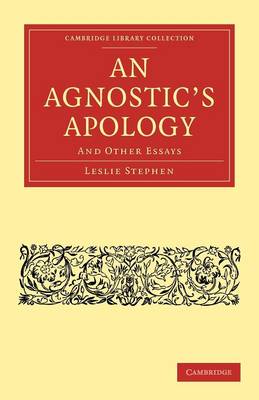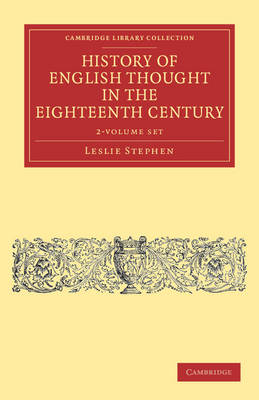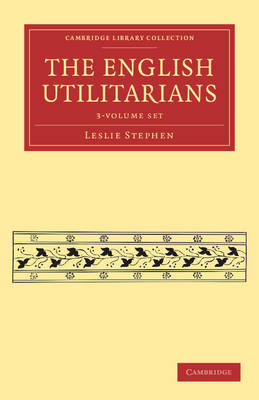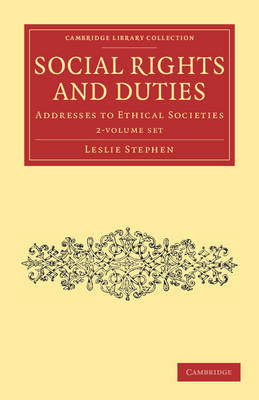Cambridge Library Collection - Philosophy
5 total works
At the age of eighty-four, Thomas Hobbes (1588-1679) wrote an autobiography in Latin elegaics. Unsurprisingly, it was not as widely read as his two great philosophical works, Leviathan and Behemoth, in which he laid out a set of sociopolitical theories that enraged many of the philosophers and moralists of Europe. In this comprehensive biography, first published in 1904, Sir Leslie Stephen (1832-1904) charts the character and changes of Hobbes' thinking, from the scholasticism of his early Oxford education, to his later devotion to geometry and deductive science. With an emphasis on personal influences, Stephen sets Hobbes and his work in the historical context of Hobbes' often difficult patrons, the Civil War, and the Restoration, providing an insight into the life of the eminent philosopher and into the tenets of early twentieth-century biographical writing. An interesting text for students of both philosophy and English literature.
The term 'agnostic' was probably coined by T. H. Huxley during a speech to the Metaphysical Society in 1869. From the Greek 'agnostos', 'unknown', it was derived from St Paul's mention of an Athenian altar inscribed 'to the unknown god'. With these overtones of ancient philosophy, agnosticism became the tag of an emergent school of thought which posited that the existence of anything beyond the material and measurable should be considered unknowable. In this collection of seven essays, first published as one volume in 1893, Leslie Stephen (1832-1904) makes a study of the 'unknown'. Across the essays, he presents arguments for the intrinsic agnosticism of many of the basic tenets of deism, explores the way in which humans construct dreams and realities, and examines the relationship between physics and philosophy. This readable and entertaining book will be of interest to students of both theology and philosophy.
History of English Thought in the Eighteenth Century 2 Volume Set
by Leslie Stephen
Published 1 December 2011
Leslie Stephen (1832-1904) was a writer, philosopher and literary critic whose work was published widely in the nineteenth century. As a young man Stephen was ordained deacon, but he later became agnostic and much of his work reflects his interest in challenging popular religion. This two-volume work, first published in 1876, is no exception: it focuses on the eighteenth-century deist controversy and its effects, as well as the reactions to what Stephen saw as a revolution in thought. Comprehensive and full of detailed analysis, this is an important work in the history of ideas. Volume 1 contains a thorough discussion of the arguments for and against deism, and of the state of theology at the end of the century. Volume 2 focuses on eighteenth-century moral philosophy, political philosophy, literature, and on the literary and religious reactions to the revolution in thought. It also discusses utilitarianism in depth.
Leslie Stephen (1832-1904), author, literary critic, social commentator and the first editor of the Dictionary of National Biography, published his two-volume History of English Thought in the Eighteenth Century (also reissued in this series) in 1876. This led him to further investigation and study of utilitarianism, whose proponents believed that human action should be guided by the principle of ensuring the happiness of the greatest number of people. While working on many other projects, especially the Dictionary, and haunted by domestic tragedy in the sudden death of his second wife in 1895, Stephen struggled for two decades with this undertaking, calling it the 'utilitarian bog': the long-awaited three-volume work was finally published in 1900. It examines the background to utilitarian theories and their development in Britain, focusing on the work of Jeremy Bentham, James Mill and John Stuart Mill.
Sir Leslie Stephen (1832-1904), the founding editor of the Dictionary of National Biography, and a writer on philosophy, ethics, and literature, was educated at Eton, King's College London and Trinity College, Cambridge, where he remained as a fellow and a tutor for a number of years. Though a sickly child, he later became a keen and successful mountaineer, taking part in first ascents of nine peaks in the Alps. In 1871 he became editor of the Cornhill Magazine. During his eleven-year tenure, he wrote two successful books on ethics, including The Science of Ethics in 1892, which was widely adopted as a standard textbook. This two-volume work, which was first published in 1896, brings together the lectures he gave to various ethical societies, mostly in London. Both volumes examine the ethical issues surrounding a range of topics including politics, morality, duty, and crime and punishment.
